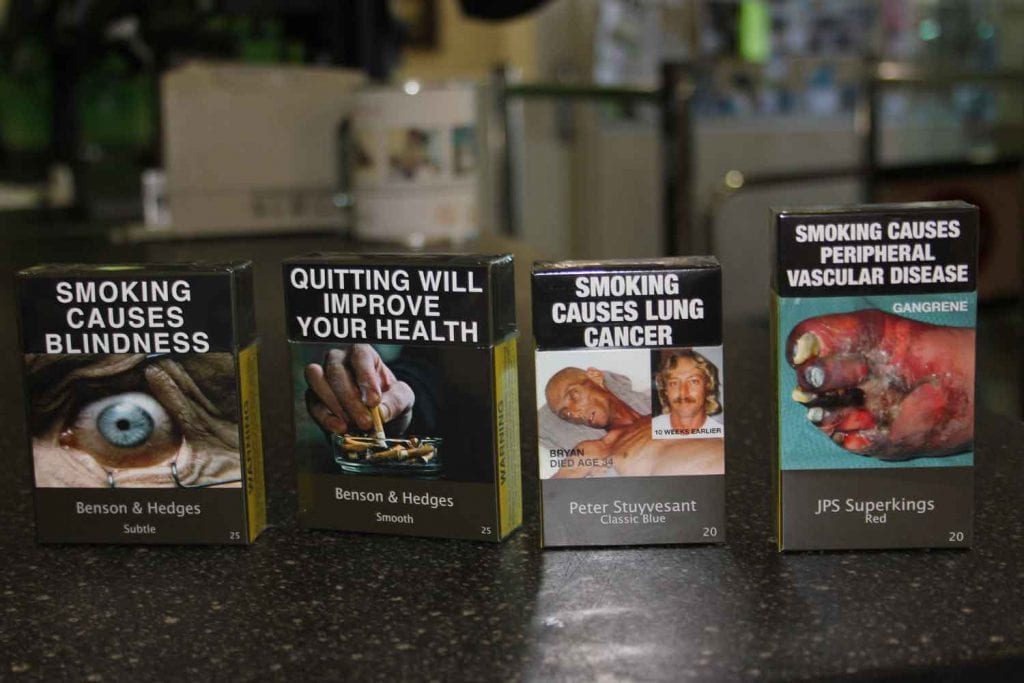
The World Trade Organization (WTO) ruled on Tuesday that Australia’s plain packaging laws are justified, rejecting complaints by Honduras and the Dominican Republic that they are unfair restrictions on trade.
In December 2012, Australia became the first country to require tobacco companies to strip their products of all branding. Cigarettes have since been sold in drab, brown packs with large graphic health warnings but no logos or other distinguishing features. Brand names are printed in generic fonts.
Following the introduction of the measure, Cuba, the Dominican Republic, Honduras and Indonesia—all major tobacco-producing countries—challenged Australia’s measure at the WTO.
The complainants argued that Australia’s Tobacco Plain Packaging Act constituted an unjustified barrier to trade, but the WTO panel found Australia’s measures were not more restrictive than was necessary to achieve the public health goal of reducing smoking.
Honduras and the Dominican Republic appealed against the panel’s findings.
The World Health Organization’s (WTO) appellate body said on Tuesday that it had found no errors in the earlier panel’s conclusions and that it rejected the complainants’ request for Australia to change its packaging rules.
Anti-tobacco activists welcomed the WTO verdict. “This ruling is yet another victory for Australia and global health and a resounding defeat for the tobacco industry, which has fiercely fought plain packaging laws,” said Matthew L. Myers, president of the Campaign for Tobacco-Free Kids. “This ruling puts to rest any remaining questions about plain packaging under international trade law.”
Myers also suggested that the plaintiffs received technical and financial support from British American Tobacco (BAT) and Philip Morris International to bring their complaints.
The tobacco industry has long argued that plain packaging is an ineffective and disproportionate measure.
“Naturally, we are disappointed with the ultimate findings of the report,” said a spokesperson for BAT, which was not part of the case. “However, it is important to note that decisions from the WTO panel or appellate body do not set a global precedent when it comes to this measure and will only be binding to the parties involved in this dispute.”
BAT also noted that the report is not an endorsement on the effectiveness of plain packaging. “The appellate body actually dismissed the panel’s finding that plain packaging reduced the consumption of tobacco products,” the company wrote in a statement.
Plain packaging is now required in at least 15 countries, and many other governments are in the process of formally considering the policy.
Tuesday’s ruling was the last by the WTO’s appellate body, which serves as a supreme court in international trade disputes but has ceased to function after the United States blocked new appointments. The result is that the Geneva-based WTO can no longer effectively intervene to settle disputes.











